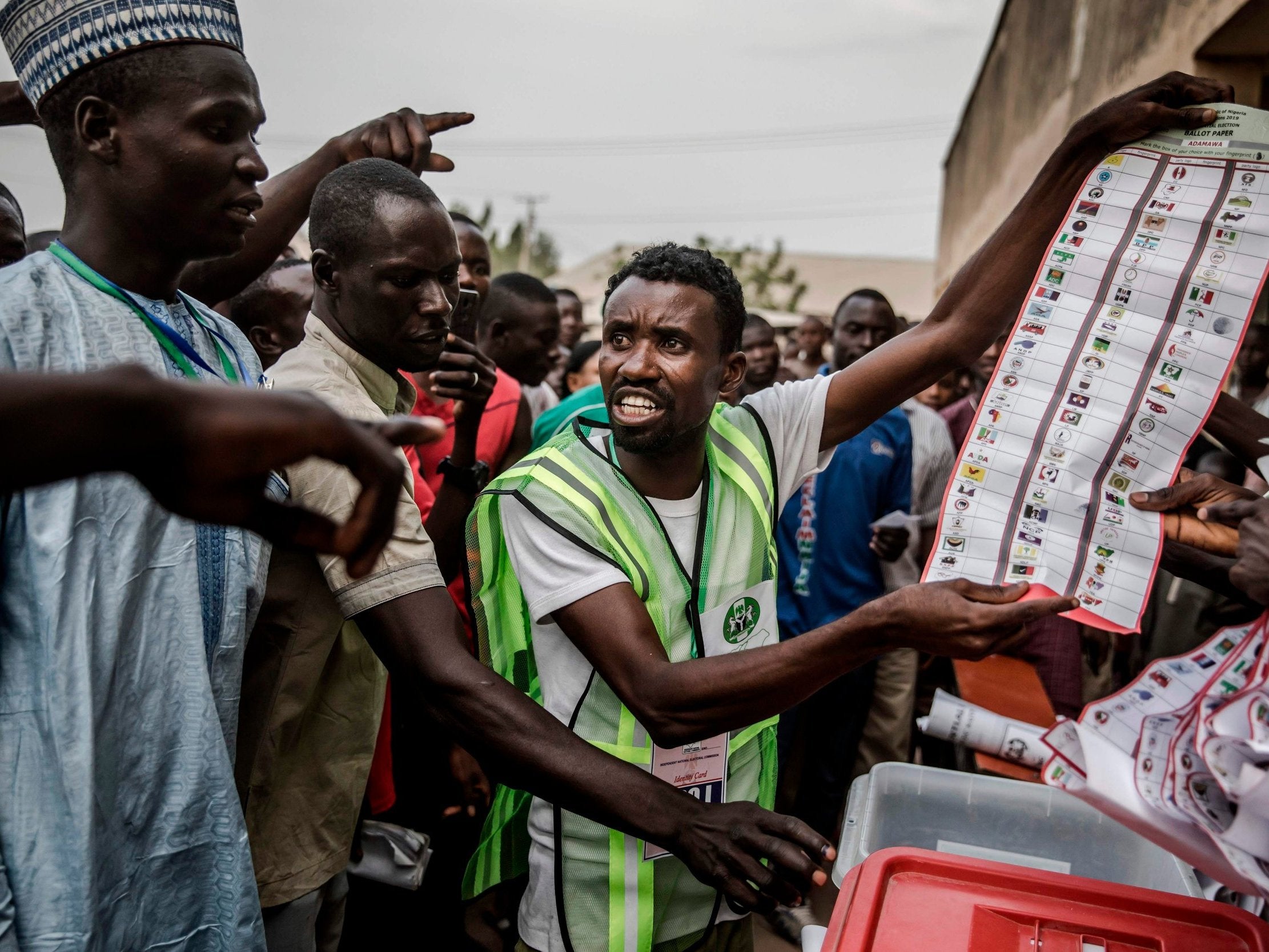Nigeria election: As many as 35 people killed as violence and poll centre delays undermine vote
Closely fought contest follows rare recession after global oil price crash

Your support helps us to tell the story
From reproductive rights to climate change to Big Tech, The Independent is on the ground when the story is developing. Whether it's investigating the financials of Elon Musk's pro-Trump PAC or producing our latest documentary, 'The A Word', which shines a light on the American women fighting for reproductive rights, we know how important it is to parse out the facts from the messaging.
At such a critical moment in US history, we need reporters on the ground. Your donation allows us to keep sending journalists to speak to both sides of the story.
The Independent is trusted by Americans across the entire political spectrum. And unlike many other quality news outlets, we choose not to lock Americans out of our reporting and analysis with paywalls. We believe quality journalism should be available to everyone, paid for by those who can afford it.
Your support makes all the difference.As many as 35 people have been killed in violence during Nigeria’s presidential election, according to Lagos-based security researchers.
Police are yet to comment on the death toll, which was reported by SBM Intelligence, but election officials acknowledged some people had been killed.
Clement Nwankwo, who represents more than 70 civil rights groups as convener of the Situation Room organisation, said 16 people had been killed across eight states.
The election, which is expected to be a close race between president Muhammadu Buhari and businessman Atiku Abubakar, has been marred by allegations of vote rigging and poll centre delays in some states.
Mr Buhari is a former military ruler seeking a second elected term on an anti-corruption platform, while Mr Atiku is a former vice president who supports expanding the role of the private sector.
Many polling stations remained open after dark and reopened on Sunday to allow Nigerians to vote following systems malfunctioning which interrupted the poll in some states.
The election was supposed to take place last Saturday but was postponed just hours before polls were due to open, after the electoral commission concluded it was “no longer feasible” to adequately go ahead with the vote.
Watching the Vote, one of the largest domestic observer groups, told reporters that logistical problems caused 59 per cent of the polling stations it monitored to open late and misconduct at some stations hurt people’s ability to vote.
However, spokesperson Hussaini Abdu said the issues did not necessarily undermine the election’s credibility.
Festus Okoye, an Independent National Electoral Commission official, said some people were killed in the southern states of Rivers, Lagos and Oyo, but could not confirm any figures.
"Everything is going on well with the count," said Mr Okoye. "From Tuesday onwards we should have a substantial number of results."
The election is expected to be decided on economic issues, as Mr Buhari and Mr Atiku have put forward different proposals to improve Nigeria’s struggling economy.
The country suffered a rare recession under Mr Buhari after global oil prices crashed, with unemployment rising to 23 per cent and inflation at 11.37 per cent in January.
Mr Buhari has focused on rooting out corruption, but critics argue his anti-corruption campaign has been selective and ineffective.
Mr Atiku has said he aims to double the size of the economy to $900bn (£690bn) by 2025.
The candidate with the most votes will only be declared winner if they have at least one quarter of the vote in two-thirds of Nigeria’s 36 states and the capital.
If they are unsuccessful, a runoff vote will be called.
Additional reporting by agencies
Join our commenting forum
Join thought-provoking conversations, follow other Independent readers and see their replies
0Comments